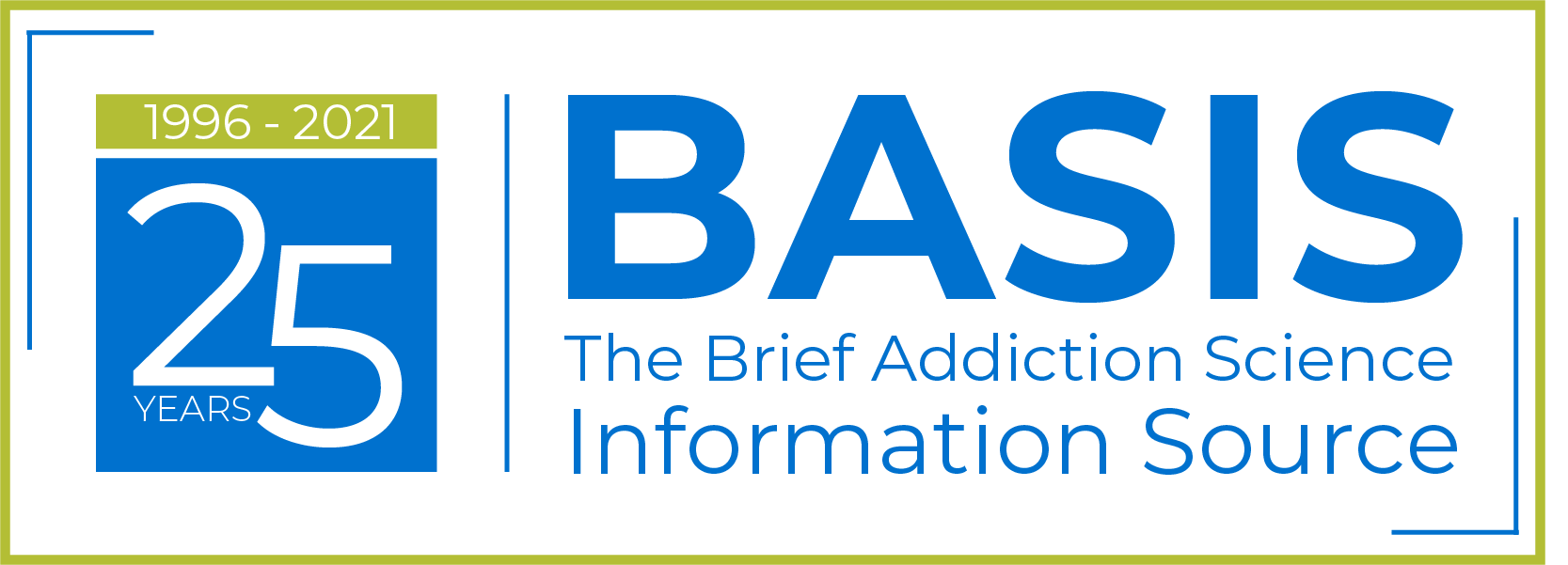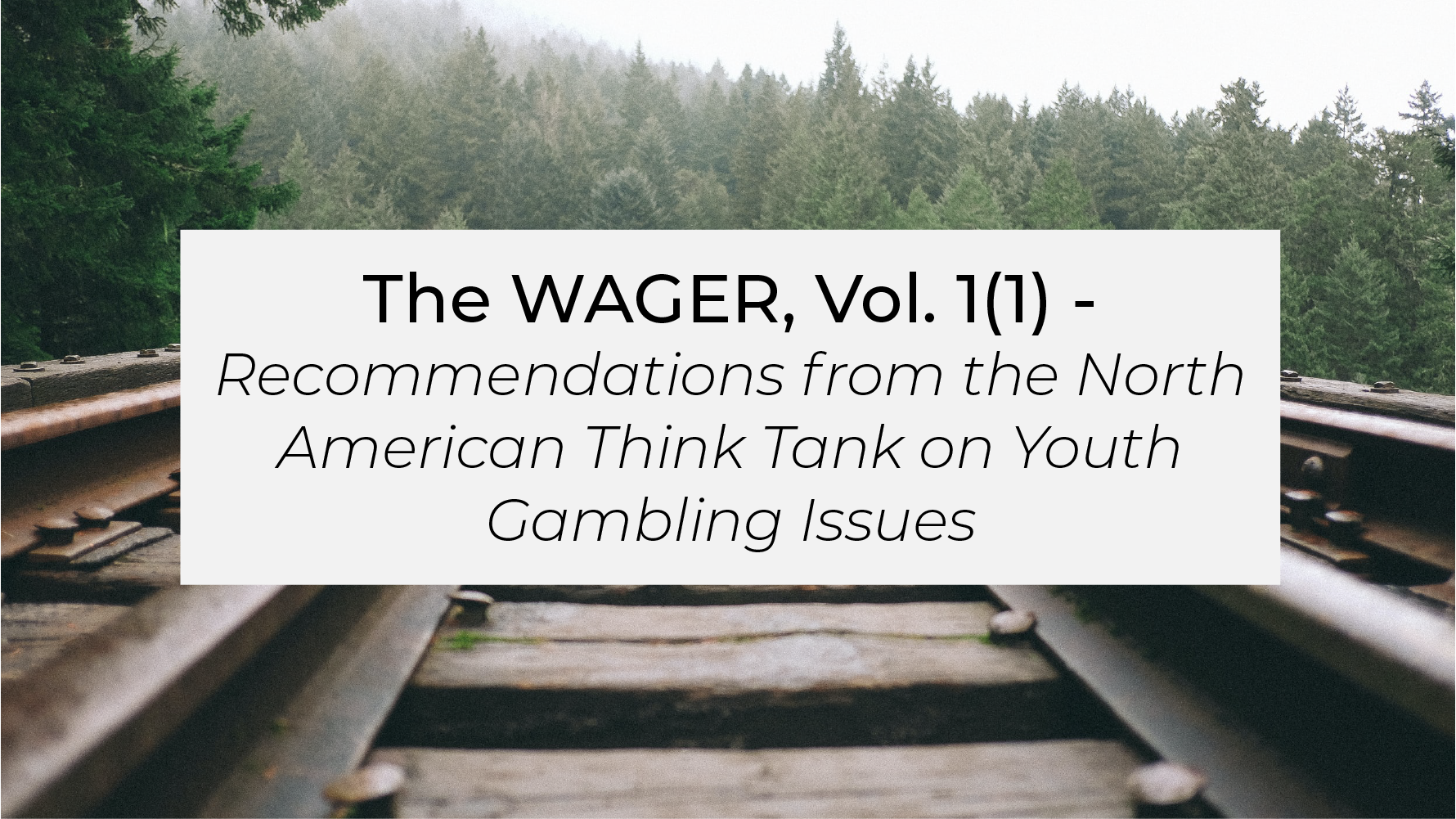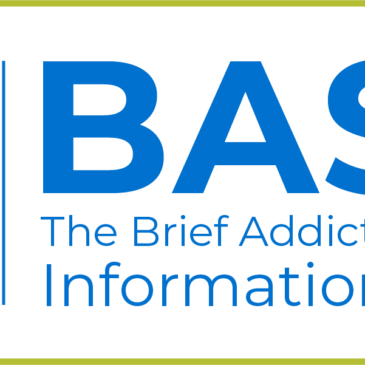 On January 2, 1996, the number one song in the United States was “One Sweet Day” by Mariah Carey and Boyz II Men. A gallon of gas cost $1.15 and a half gallon of milk $1.43. Scientists announced that, for the first time, they had identified a gene linked to an ordinary human personality trait (novelty seeking). That day also was momentous for the Division on Addiction: we published the very first issue of The Worldwide Addiction Gambling Report (The WAGER). Then, we published The WAGER by faxing one-page research summaries to those who we thought might benefit from learning about gambling science – state and national legislators, national and international gambling regulators, scientists who were focusing on addiction, and people who asked us for information about gambling. There was – and is – no cost for The WAGER and we encouraged readers then and now to copy and share WAGER issues widely.
On January 2, 1996, the number one song in the United States was “One Sweet Day” by Mariah Carey and Boyz II Men. A gallon of gas cost $1.15 and a half gallon of milk $1.43. Scientists announced that, for the first time, they had identified a gene linked to an ordinary human personality trait (novelty seeking). That day also was momentous for the Division on Addiction: we published the very first issue of The Worldwide Addiction Gambling Report (The WAGER). Then, we published The WAGER by faxing one-page research summaries to those who we thought might benefit from learning about gambling science – state and national legislators, national and international gambling regulators, scientists who were focusing on addiction, and people who asked us for information about gambling. There was – and is – no cost for The WAGER and we encouraged readers then and now to copy and share WAGER issues widely.
By 2004, we realized that readers could benefit from learning more generally about addiction research and how science produces facts. As a result, we launched The DRAM, ASHES, and STASH, to cover research related to drinking, smoking, and other substance use, respectively. We combined all of these publications under one umbrella, and The Brief Addiction Science Information Source (The BASIS) was born. Today, The BASIS is celebrating more than 25 years of scientific and scholarly reviews.
When we created that first issue of The WAGER, gambling research was woefully underfunded, and the science of gambling was not developed enough to answer pressing questions about gambling and the array of problems it can cause. To help organize the field and stimulate scientific activities, the Division on Addiction, the Massachusetts Council on Compulsive Gambling,1 and the Minnesota Council on Compulsive Gambling collaborated to establish and coordinate the first North American Think Tank on Youth Gambling Issues, which was held on April 6-8, 1995 at Harvard Medical School. A unique and scholarly group of researchers and clinicians from throughout the United States and Canada were invited to participate in this event. The think tank participants represented diverse fields including government, education, the gambling industry, finance, law enforcement, the judiciary, health care, and research.
 After two days of considerable discussion and debate, the participants of the North American Think Tank on Youth Gambling developed a panoply of recommendations that they whittled down to seven key areas of concern. Our first issue of The WAGER was dedicated to reviewing these recommendations. Today, to celebrate our 25-year anniversary, we briefly review the progress we, and others, have made toward making these recommendations a reality:
After two days of considerable discussion and debate, the participants of the North American Think Tank on Youth Gambling developed a panoply of recommendations that they whittled down to seven key areas of concern. Our first issue of The WAGER was dedicated to reviewing these recommendations. Today, to celebrate our 25-year anniversary, we briefly review the progress we, and others, have made toward making these recommendations a reality:
1. POLICY DEVELOPMENT RECOMMENDATIONS: The U.S. and Canada create a binational task force to coordinate the development of a North American response to youth gambling and solicit the funds necessary to pay for needed programs.
- Although considerable efforts have been made by a number of outstanding groups, for example, the International Centre for Youth Gambling Problems and High-Risk Behaviors at McGill University, there has not yet been a coordinated North American response to policy issues. Similarly, the United States has been unwilling to commit federal funding to focus on gambling-related questions, despite the widespread expansion of legalized gambling. This lack of dedicated funding makes a binational task force difficult to establish.
2. FUNDING RECOMMENDATIONS: The task force be structured as a not-for-profit organization to attract funding from public and private sector sources.
- Canada has established funding sources for national and regional efforts to study gambling-related issues. As we mentioned, the United States, however, has been unwilling to dedicate research funding to questions of gambling and gambling-related harms. This circumstance leaves the funding needs to private sector sources. For example, the gambling industry has been the leading funder of gambling-related research in the United States. Although the body of knowledge is significant, this recommendation targeted the need for federal funds.
3. LAW ENFORCEMENT RECOMMENDATIONS: The gambling industry establish industry standards for enforcement of underage gambling prohibitions, support tougher penalties against vendors who fail to enforce legal gambling age limits, and aggressively promote policies that prohibit payment of prizes to minors gambling illegally.
- The American Gaming Association (AGA) has established a code of conduct for its member casinos. However, there has not yet been a rigorous independent evaluation of the member organizations and how well they satisfy this code of conduct, to our knowledge.
4. RESEARCH RECOMMENDATIONS: An international research effort be undertaken to determine the prevalence of youth gambling and the effectiveness of prevention and treatment programs, findings to be disseminated via an electronic “information superhighway” through a national or international clearinghouse.
- Although there are many epidemiological studies focusing on the incidence and prevalence of youth gambling and gambling-related problems, there have been no internationally-driven research efforts that target the epidemiology of youth gambling, to our knowledge. Several studies have examined the effectiveness of youth gambling prevention programs. Although we cannot take credit for the “information superhighway” that has drastically expanded the worldwide sharing of knowledge since 1996, we’re glad to have been a consistent source of reliable information via The BASIS. Other reliable sources of information online include the Gambling Research Exchange, Ontario’s Evidence Center, the (U.S.) National Center for Responsible Gaming’s2 “Increasing the Odds” series – the first of which was dedicated to youth gambling – and The Transparency Project, the world’s first repository dedicated to providing access to the data underlying privately funded addiction research projects.
5. TREATMENT AND TRAINING RECOMMENDATIONS: Treatment methods in North America should be inventoried and evaluated for clinical efficacy, and professional training for youth gambling treatment providers should be tailored to meet training needs.
- Since we published the first issue of The WAGER, we’ve learned a lot about the most effective ways to treat problem gambling. Based on the evidence that was available in 2004, together with the Massachusetts Council on Compulsive Gambling, we created a treatment guide for clinicians. With funding from the Massachusetts Department of Public Health, we recently updated these treatment guidelines. Around the same time, the late Dr. Nancy Petry and her colleagues published a systematic review of treatments for problem gambling. We and Dr. Petry’s team observed that cognitive-behavioral therapy and motivational interviewing are the best-supported approaches for treating problem gambling.
6. EDUCATION RECOMMENDATIONS: Curricula and programs be developed to educate children, parents and teachers about the issue of youth gambling.
- Education and advocacy groups have created innovative programs to educate children, parents, and teachers about the dangers of youth gambling. For instance, the (U.S.) National Council on Problem Gambling and the International Centre for Youth Gambling Problems and High-Risk Behaviors at McGill University hold an annual “Gift Responsibly” campaign to raise awareness of the dangers of buying lottery tickets for children. U.S. state councils on problem gambling host their own youth gambling prevention programs, and people in recovery from problem gambling appear at school assemblies to share their stories with children. With funding from the National Institute on Drug Abuse and the Massachusetts Department of Public Health, we, in collaboration with the Massachusetts Council on Compulsive Gambling, created a middle-school curriculum called Facing the Odds: The Mathematics of Gambling and Other Risks. We designed this program to help prevent problem gambling by educating kids about probability, statistics, and mathematics.
7. PUBLIC AWARENESS AND MEDIA RECOMMENDATIONS: Policy makers and the public should be educated about youth gambling through the media and various other strategies; the gambling industry should develop and promote a voluntary standards program to discourage the targeting of gambling advertising to young consumers.
- As we mentioned before, the American Gaming Association has established a code of conduct that provides standards “to prevent underage gambling and unattended minors in casinos.” This code of conduct includes guidance about avoiding serving alcohol to minors or advertising to minors; preventing minors from accessing gambling settings; dealing with unsupervised minors; and appropriately using imagery, symbols, and endorsements. Additionally, the National Center for Responsible Gaming compiled relevant research findings into downloadable booklets including, “Gambling and Public Health: A Guide for Policymakers.” The National Council on Problem Gambling and a variety of international organizations, as well as The BASIS itself, also play a public education role for policy makers and other stakeholders.
We’re proud to have helped advance the field of gambling studies by establishing the 1995 Think Tank, which provided the blueprint for progress in scholarly and scientific areas associated with gambling research, regulation, and clinical practice. More broadly, we’re proud to have launched The WAGER, and then The BASIS, to bring addiction science to readers worldwide. We have worked to break down barriers created by journal paywalls and scientific jargon. We expect to use The BASIS to disseminate addiction science and demystify the scientific progress for at least another 25 years! We hope readers will join us to see where the journey leads.
Howard J. Shaffer, PhD, CAS
Morris E. Chafetz Associate Professor of Psychiatry in the Field of Behavioral Sciences at Harvard Medical School
Distinguished Faculty, Division on Addiction
Editor-in-Chief, The BASIS
Heather M. Gray, PhD
Director of Academic Affairs, Division on Addiction
Instructor in Psychiatry, Harvard Medical School
Senior Editor, The BASIS
Funding Disclosures
The Division on Addiction currently receives funding from EPIC Risk Management; Foundation for Advancing Alcohol Responsibility; GVC Holdings PLC; Massachusetts Department of Public Health, Bureau of Substance Addiction Services via St. Francis House; Massachusetts Department of Public Health, Office of Problem Gambling Services via Health Resources in Action; MGM Resorts International via the University of Nevada, Las Vegas; National Institutes of Health (National Institute of General Medical Sciences and National Institute on Drug Abuse) via The Healing Lodge of the Seven Nations; Substance Abuse and Mental Health Services Administration via the Addiction Treatment Center of New England; and Substance Abuse and Mental Health Services Administration via the Gavin Foundation.
Dr. Howard J. Shaffer has received funding from the Dunes of Easthampton, a residential addiction treatment program, for serving as a clinical consultant. He received reimbursement from Universite Laval for travel expenses related to his role as a member of the international working group on responsible gambling research, but no honorarium. He has received royalties for his many books. With his colleagues, his most recent book is Responsible Gambling: Primary Stakeholder Perspectives (2019) from Oxford University Press. He has received honoraria from Harvard Medical School for authoring articles for the Harvard Health Blog and Harvard Health Publications. He has received various honoraria for lecturing throughout the world. Dr. Shaffer also has received funding for consultation from the American Psychological Association, Las Vegas Sands Corp., Davies Ward Phillips & Vineberg, LLP, Winston & Strawn LLP, and Freshfields Bruckhaus Deringer, LLP. Dr. Shaffer is the first incumbent of the Morris E. Chafetz Professorship in Psychiatry in the Field of Behavioral Sciences at Harvard Medical School. Using funds primarily derived from the alcohol industry, the Foundation for Advancing Alcoholism Research (FAAR) created this endowed chair.
Dr. Heather M. Gray has served as a paid program evaluator for Duffy Health Center, served as a paid grant reviewer for the National Center for Responsible Gaming (NCRG; now the ICRG), received travel funds from the Tung Wah Group of Hospitals/The Hong Kong Jockey Club Charities Trust, received honoraria funds for preparation of a book chapter from Universite Laval, received travel funds and honoraria from the NCRG, and received course royalty fees from the Harvard Medical School Department of Continuing Education. Dr. Gray is a non-paid member of the New Hampshire Council for Responsible Gambling.
________________





Bob Ladouceur January 15, 2021
Fantastic, great initiative, very instructive publication.
Congratulations and keep up the great work.
bob
Marlene D. Warner January 17, 2021
Thank you for this great review. Much has been accomplished, but there is still much to do. Best to all of you.
Marlene